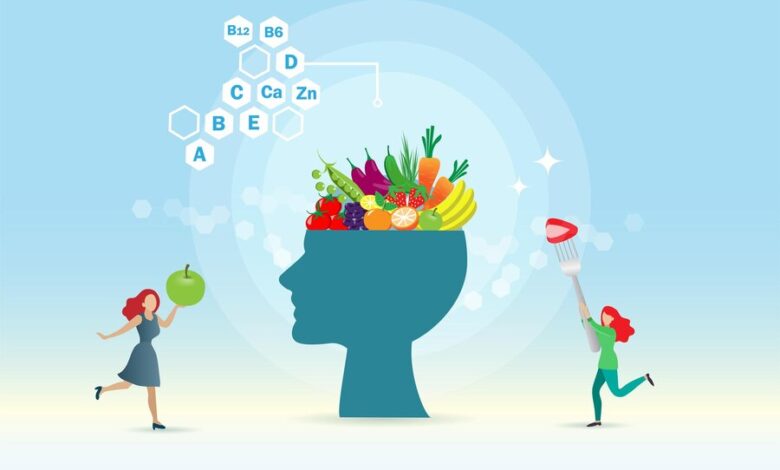Tips for a Healthy Memory

- Introduction
- Brief explanation of the importance of a healthy memory.
- Understanding Memory
- Different types of memory (short-term, long-term, and working memory).
- Factors Affecting Memory
- Age, stress, lack of sleep, and lifestyle choices.
- Nutrition for Memory Health
- Foods that boost memory and cognitive function.
- Physical Exercise and Memory
- The link between regular exercise and improved memory.
- Mental Stimulation
- Engaging activities to keep the brain active.
- Quality Sleep for Memory Consolidation
- The role of sleep in memory formation and retention.
- Stress Management
- Techniques to reduce stress for better memory health.
- Social Connections and Memory
- The impact of social interactions on cognitive abilities.
- Mindfulness and Memory
- Practices that enhance mindfulness for improved memory.
- Avoiding Memory Killers
- Habits and substances that can harm memory.
- Memory Techniques and Strategies
- Practical methods to enhance memory recall.
- Technology and Memory
- Positive and negative effects of technology on memory.
- Balancing Work and Leisure for Memory
- Achieving a healthy balance for optimal memory function.
- Conclusion
- Summarize key points and emphasize the importance of incorporating memory-friendly habits.
Tips for a Healthy Memory
Introduction
Memory is a fascinating aspect of human cognition, playing a crucial role in our daily lives. From recalling important information to learning new skills, a healthy memory is essential for overall well-being. In this article, we will explore practical tips to promote and maintain a robust memory.
Understanding Memory
Before delving into memory-boosting strategies, it’s essential to understand the different types of memory. Short-term, long-term, and working memory each serve distinct purposes in our cognitive processes. Recognizing these distinctions lays the foundation for effective memory enhancement.
Factors Affecting Memory
Various factors can impact memory function. Age, stress, lack of sleep, and lifestyle choices all play a role in cognitive health. Acknowledging these influences allows us to address them proactively, fostering a healthier memory.
Nutrition for Memory Health
The saying “you are what you eat” extends to cognitive function. Certain foods, rich in antioxidants and omega-3 fatty acids, have been linked to improved memory and cognitive performance. Incorporating these into our diets can contribute to overall brain health.
Physical Exercise and Memory
Regular physical exercise not only benefits the body but also has positive effects on cognitive function. Engaging in activities that get the blood pumping enhances memory and supports overall brain health.
Mental Stimulation
Keeping the brain active through mental exercises is vital for maintaining a sharp memory. Activities like puzzles, reading, and learning new skills stimulate the brain, promoting cognitive resilience.
Quality Sleep for Memory Consolidation
Sleep is a crucial component of memory consolidation. During sleep, the brain processes and stores information gathered throughout the day. Ensuring adequate and quality sleep is essential for optimal memory function.
Stress Management
Chronic stress can have detrimental effects on memory. Implementing stress management techniques, such as mindfulness and relaxation exercises, can significantly improve cognitive well-being.
Social Connections and Memory
Human connection plays a role in memory health. Engaging in social activities and maintaining meaningful relationships contribute to cognitive vitality.
Mindfulness and Memory
Practicing mindfulness techniques, such as meditation and deep breathing, enhances focus and concentration, positively impacting memory function.
Avoiding Memory Killers
Certain habits and substances, such as excessive alcohol consumption and smoking, can harm memory. Being aware of and avoiding these memory killers is essential for long-term cognitive health.
Memory Techniques and Strategies
Utilizing memory techniques, such as visualization and association, can improve memory recall. Implementing these strategies in daily life enhances cognitive performance.
Technology and Memory
While technology can aid memory through apps and games, excessive screen time may have adverse effects. Striking a balance and using technology mindfully is key to maintaining a healthy memory.
Balancing Work and Leisure for Memory
Finding a balance between work and leisure is crucial for overall well-being, including memory health. Taking breaks and engaging in leisure activities contribute to a healthier, more resilient memory.
Conclusion
In conclusion, nurturing a healthy memory involves a multifaceted approach. From nutrition and exercise to stress management and mental stimulation, incorporating these tips into daily life can significantly enhance memory function. Remember, a healthy memory is not only about retaining information but also about enriching the overall quality of life.
FAQs
- How can I improve my short-term memory?
- Engage in memory exercises, get adequate sleep, and maintain a healthy lifestyle.
- Are there specific foods that boost memory?
- Yes, foods rich in antioxidants and omega-3 fatty acids, such as berries and fatty fish, are beneficial for memory.
- Is technology harmful to memory?
- Excessive screen time can have negative effects, but using technology mindfully can be beneficial.
- Can stress impact long-term memory?
- Chronic stress has been linked to memory impairment, emphasizing the importance of stress management.
- What role does social interaction play in memory health?
- Social connections contribute to cognitive vitality, positively influencing memory function.





